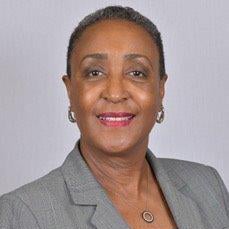“When children can’t read to learn, they become disruptive and when they are disruptive, they are more likely to become court connected. But, when we provide early intervention and ensure children have access to the services they need and are entitled to, they are able to flourish and they are less likely to end up in court or incarcerated.”
Judge Wenona C. Belton, Fulton County Juvenile Court (Ret.)

In her role as a senior juvenile court judge serving statewide, as a member of the Campaign Cabinet, and as a board director for the National Council of Juvenile and Family Court Judges, Judge Wenona Belton (Ret.) is supporting language and literacy development as a way to prevent children and youth from becoming court connected, to reduce recidivism, and to empower the parents of court-connected youth and parents in the community to help their children chart a pathway towards a new and brighter future.
Data suggests that the majority of youth who come before the court struggle with literacy, learning disabilities and/or behavioral health challenges. That data is reinforced by what Judge Belton saw in her courtroom and what she saw in her previous roles as a public defender and attorney for the Department of Family and Children Services.
To break the school-to-prison pipeline, Judge Belton promotes programs in juvenile courts that help youth access the supports and services they need to get back on track.
To empower parents in their roles as their child’s advocate, she encourages parents to access the mental health, behavior, education, developmental disabilities and other services that their families need.
